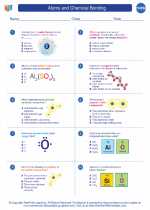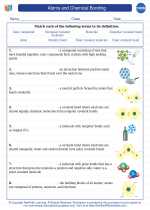Hydrolysis in Chemistry
Hydrolysis is a chemical reaction in which a compound reacts with water, leading to the breakdown of the compound into two or more products. This reaction involves the cleavage of chemical bonds through the addition of water molecules.
Mechanism of Hydrolysis
The general mechanism for hydrolysis involves the breaking of a chemical bond via the nucleophilic attack by a water molecule. This can occur through two main types of hydrolysis reactions:
- Acidic Hydrolysis: In acidic hydrolysis, the reaction is catalyzed by the presence of an acid. The acid provides a proton that can react with a particular functional group in the compound, leading to the cleavage of the bond.
- Basic Hydrolysis: Basic hydrolysis involves the use of a base to catalyze the reaction. The base provides a hydroxide ion that can attack the compound, leading to bond cleavage.
Examples of Hydrolysis
Hydrolysis reactions are widespread in organic and inorganic chemistry. Some common examples include:
- Hydrolysis of esters to form carboxylic acids and alcohols
- Hydrolysis of peptides to form amino acids
- Hydrolysis of metal salts to form metal hydroxides
Importance of Hydrolysis
Hydrolysis plays a crucial role in various biochemical processes, such as digestion, where large biomolecules are broken down into smaller, more easily absorbed components. It also has industrial applications, such as in the production of soaps and biodiesel.
Study Guide for Hydrolysis
When studying hydrolysis, it's important to focus on the following key points:
- Mechanism: Understand the mechanism of hydrolysis, including the role of acids and bases in catalyzing the reaction.
- Types of Hydrolysis: Differentiate between acidic and basic hydrolysis and recognize examples of each type.
- Biological and Industrial Significance: Explore the importance of hydrolysis in biological systems and industrial processes.
- Applications: Study the various applications of hydrolysis in everyday life and industrial settings.
By mastering the concept of hydrolysis and its applications, you will gain a deeper understanding of chemical reactions and their relevance in the world around us.
[Hydrolysis] Related Worksheets and Study Guides:
.◂Chemistry Worksheets and Study Guides High School. Atoms and Chemical Bonding

 Worksheet/Answer key
Worksheet/Answer key
 Worksheet/Answer key
Worksheet/Answer key
 Vocabulary/Answer key
Vocabulary/Answer key
 Vocabulary/Answer key
Vocabulary/Answer key
